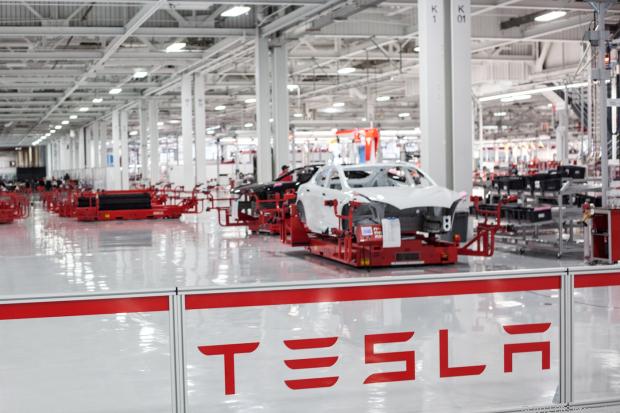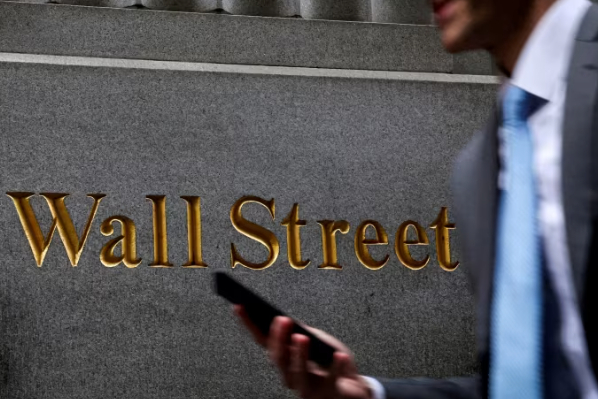
In the field of new energy vehicles, Tesla is undoubtedly synonymous with innovation and leadership, and its electric vehicle technology, autonomous driving system and software update strategy have repeatedly refreshed industry cognition. However, a recent announcement by the National Highway Traffic Safety Administration (NHTSA) has pushed the technology giant to the forefront of public opinion - Tesla announced that it will recall more than 9,000 Model X electric cars in the United States because of the risk of falling off the roof trim of the vehicle. The decision not only broke with Tesla's past practice of relying on over-the-air software updates to solve vehicle problems, but also triggered a deep public reflection on its product quality control and safety standards.
Tesla's physical recall of the Model X is undoubtedly a major adjustment to its traditional response strategy. In the past, Tesla was more inclined to carry out software updates through OTA (Over-The-Air, over-the-air download technology) to repair various problems existing in the vehicle, and this efficient and convenient way was regarded as a highlight of Tesla's technological innovation. However, it is clear that the physical defect of the roof trim can not be fixed by a simple software update, forcing Tesla to resort to more traditional and costly recalls.
This shift, on the surface, is Tesla's attention to and response to consumer safety, but it also exposes potential vulnerabilities in product design, quality control and supply chain management. Tesla's rapid iteration and technological innovation, while bringing the ultimate driving experience, also seems to sacrifice the stability and durability of the product to a certain extent. The recall incident is undoubtedly a warning to Tesla's "technology first" concept, reminding it to pursue technological innovation at the same time, but also to strictly control product quality and safety standards.
According to data from Bizzycar, a recall management platform developer, the number of Tesla recalls in the United States in the first half of this year has been close to 2.6 million, which is less than the traditional automaker giant Ford, but it is particularly prominent in the field of new energy vehicles. Especially in the context of Tesla's consistent software repair, such a large-scale physical recall undoubtedly intensified the market's concerns about Tesla's safety performance.
In-depth analysis of these recall cases, it is not difficult to find that Tesla recalls for a variety of reasons, from battery management system to automatic driver assistance system software flaws, to today's physical component failures, covering almost every aspect of electric vehicles. This makes people question whether Tesla, in the pursuit of technological innovation and rapid iteration, is too aggressive to ignore the basic guarantee of product safety?
For any automaker, a recall is an extremely sensitive and thorny matter, directly related to consumer trust and brand reputation. Tesla's recall is not only a test of the quality of its products, but also a test of its ability to handle crises, transparency and responsibility.
In the face of the recall, Tesla needs to do more than simply notify and repair, more importantly, to show the public its determination and ability to solve the problem, and attach great importance to consumer safety. This requires Tesla to maintain a high degree of transparency in the recall process, timely and accurately inform the public of the recall progress and solutions, at the same time, but also to deeply reflect on the cause of the incident, strengthen product quality control from the source, to avoid similar problems in the future.
The Tesla Model X recall is not only a crisis for Tesla itself, but also a warning for the entire new energy vehicle industry. With the continuous expansion of the new energy vehicle market, consumers' requirements for product performance, safety and reliability are also increasing. For new energy vehicle manufacturers, how to find a balance between technological innovation and product quality has become a difficult problem in front of them.
As a leader in the industry, Tesla's every move can have a profound impact on the industry. Therefore, Tesla should take this opportunity to strengthen internal management, improve product quality control, and ensure that the safety performance of each product can reach the highest standards. At the same time, other new energy vehicle manufacturers should also draw lessons from this, adhere to the principle of technological innovation and responsibility, and jointly promote the healthy development of the new energy vehicle industry.
The Tesla Model X recall, although an unpleasant experience, is also a force to promote the development of the new energy vehicle industry. It reminds us that in the pursuit of technological innovation, we must not ignore the importance of product quality and safety. Only by truly putting the interests of consumers in the first place and continuously improving product quality and service level, can we be invincible in the fierce market competition. It is hoped that Tesla can take this recall as an opportunity to strengthen internal management, rebuild consumer trust, and contribute more positive energy to the future development of the new energy vehicle industry.

Recently, a series of corporate borrower fraud cases have been exposed on Wall Street, implicating institutions such as Jefferies, First Brands, Zions Bank, and Western Union Bank, with massive loan losses triggering market panic.
Recently, a series of corporate borrower fraud cases have b…
According to a report citing the Messenger Post of Papua Ne…
In the latest meeting minutes released by the Bank of Japan…
November 4th witnessed a "day of terror" in the cryptocurre…
On October 26th local time, Tesla's CEO Elon Musk announced…
When the US National Nuclear Security Agency fell into an "…